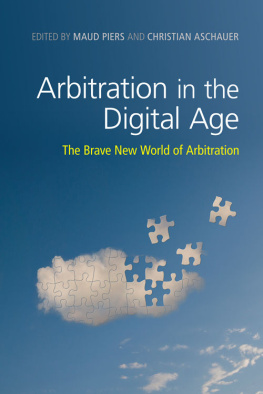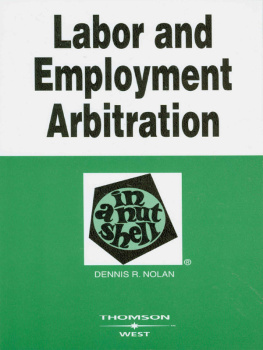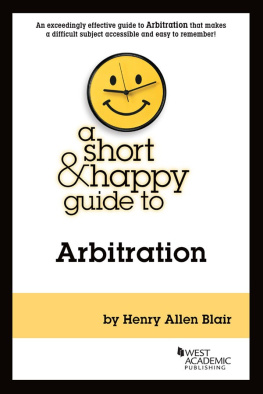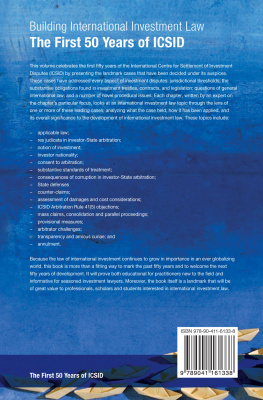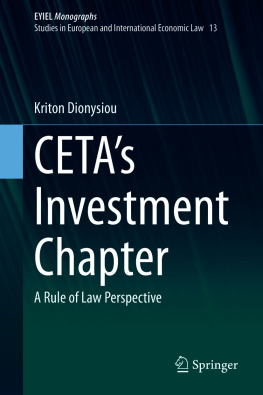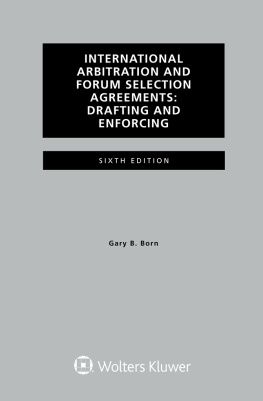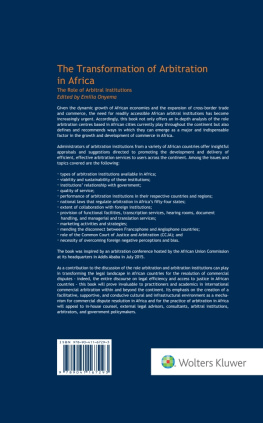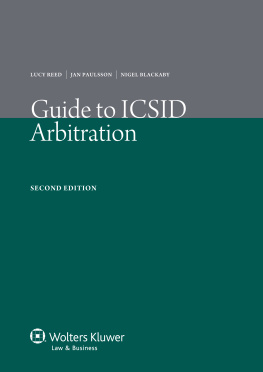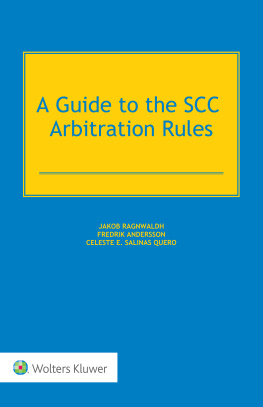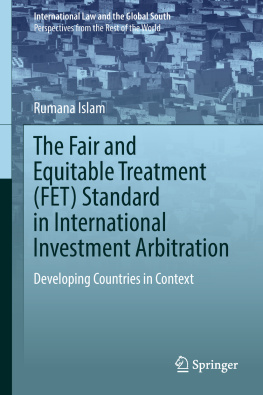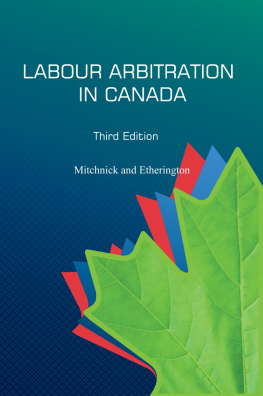Arbitration in the Digital Age analyzes how technology can be efficiently and legitimately used to further sound arbitration proceedings. The contributions from a variety of arbitration scholars report on current developments, predict future trends and assess their impact from a practical, legal, and technical point of view. The book also discusses the relationship between arbitration and the Internet and analyzes how social media can affect arbitrators and counsel's behaviour. Furthermore, it analyzes the validity of electronic arbitration agreements and awards, as well as Online Arbitration (OArb). The volume establishes, on a very practical level, how technology could be used by arbitration institutions, arbitrators, parties to an arbitration and counsel. This book will be of special interest to arbitrators and lawyers involved in international commercial arbitration.
Maud Piers is Professor of Law at the University of Ghent in Belgium where she focuses her research and teaching on arbitration law, European private law and Alternative Dispute Resolution (ADR). She is also the director of the UGents Transnational Law Center that studies the role of technology at the service or as a means to resolve transnational business disputes. She regularly acts as an arbitrator and is Vice-President of the Belgian Center of Arbitration and Mediation (Cepani). She was a founder and is currently an editor (and former editor-in-chief) of the Belgian Review for Arbitration ; an editor for ; an editor of the Nederlands-Vlaams Tijdschrift voor Mediation en Conflict Management ; and a korrespondierende Herausgeber of the Zeitschrift fr Europisches Privatrecht.
Christian Aschauer is professor of arbitration law and practice at the University of Graz (Austria) and Independent Arbitrator based in Vienna. His practice encompasses different industry sectors, with an emphasis on engineering, general trade, machinery and corporate disputes. He is also a member of the Arbitral Council of the Chamber of Arbitration of Milan (Camera Arbitrale di Milano). Christian Aschauer has conducted arbitrations, including arbitrations with states and state entities, under the Rules of the ICC, VIAC, DIS, Camera Arbitrale di Milano, FTCA (Belgrade) and UNCITRAL, as well as ad hoc arbitral proceedings. He is a frequent speaker at seminars and is publishing in the field of arbitration as well as mediation.
University Printing House, Cambridge CB2 8BS, United Kingdom
One Liberty Plaza, 20th Floor, New York, NY 10006, USA
477 Williamstown Road, Port Melbourne, VIC 3207, Australia
314321, 3rd Floor, Plot 3, Splendor Forum, Jasola District Centre, New Delhi - 110025, India
79 Anson Road, #06-04/06, Singapore 079906
Cambridge University Press is part of the University of Cambridge.
It furthers the University's mission by disseminating knowledge in the pursuit of education, learning and research at the highest international levels of excellence.
www.cambridge.org
Information on this title: www.cambridge.org/9781108417907
DOI: 10.1017/9781108283670
Cambridge University Press 2018
This publication is in copyright. Subject to statutory exception and to the provisions of relevant collective licensing agreements, no reproduction of any part may take place without the written permission of Cambridge University Press.
Printed in the United Kingdom by Clays, St Ives plc
A catalogue record for this publication is available from the British Library
ISBN 978-1-108-41790-7 Hardback
Cambridge University Press has no responsibility for the persistence or accuracy of URLs for external or third-party internet websites referred to in this publication, and does not guarantee that any content on such websites is, or will remain, accurate or appropriate.
Contents
Maud Piers and Christian Aschauer
Maud Piers and Christian Aschauer
Mohamed S. Abdel Wahab and Ethan Katsh
Philipp Schaumann and Max Burger-Scheidlin
Erik Schfer
Annet Van Hooft and Julia Kroes-Lastochkina
Sophie Nappert and Paul Cohen
Reinmar Wolff
Amy J. Schmitz
Pablo Corts and Tony Cole
Niuscha Bassiri
Marc D. Veit
Maud Piers and Christian Aschauer
Contributors
Mohamed S. Abdel Wahab , Partner, Zulficar & Partners (Cairo), Vice President of the ICC International Court of Arbitration
Christian Aschauer , Professor at the University of Graz (Austria), Independent Arbitrator
Niuscha Bassiri , Partner, Hanotiau & van den Berg (Bruxelles)
Max Burger-Scheidlin , General Manager of ICC Austria and Consultant at ICC Commercial Crime Services
Paul H Cohen , Barrister, 45 Gray's Inn Square (London) and Editor in Chief of the Journal of Technology in International Arbitration
Tony Cole , Of Counsel, Gentium Law Group (Geneva)
Pablo Corts , Professor at the University of Leicester Law School (UK)
Annet van Hooft , Partner, Bird & Bird (Paris)
Ethan Katsh , Director, National Center for Technology and Dispute Resolution and Professor Emeritus, University of Massachusetts Amherst
Julia Kroes-Lastochkina , Associate, Clifford Chance (Amsterdam)
Sophie Nappert , Independent Arbitrator, 3 Verulam Buildings (London)
Maud Piers , Professor at the University of Ghent (Belgium), Independent Arbitrator
Philipp Schaumann , Independent Security Consultant, Lecturer at the Donau University Krems (Austria)
Amy J. Schmitz , Professor at the University of Missouri School of Law
Erik Schfer , Partner, Cohaus & Florack (Dsseldorf) and Co-Chair of the ICC Task Force on the Use of Information Technology in International Arbitration
Marc D. Veit , Partner, Lalive (Zurich)
Reinmar Wolff , Assistant Professor at the University of Marburg (Germany) and Independent Arbitrator
Foreword
Welcome to the Brave New World of Arbitration
The interaction between technology and arbitration is not something for the future it is happening right now. The challenge that lies before us is how to integrate technology in an orderly fashion and use it in order to improve arbitration. Technology will change the way we arbitrate. It is up to the arbitration community to decide on how this happens, not when.
The international arbitration community has always been focused on improving the efficiency and overall quality of arbitration. The different stakeholders in arbitration seek to optimize such factors as the duration and costs of arbitration, as well as the transparency and predictability of these factors. The key question is now how technology can (continue to) play a role in achieving these goals.
Three ways of interaction between arbitration and technology are distinguished here.
The first one is the most comprehensible, i.e. whereby parties and arbitrators make use of technology, e.g. online and electronic tools, in support of the procedure. Costs and time are saved by communicating solely by way of email and filing submissions and exhibits on an online platform or drop box, the access to which is provided by the arbitral institution or the arbitrator. Moreover, over the last few years, procedural hearings have been increasingly held by telephone or video-conference. In contrast, witness hearings or hearings on the merits today largely remain physical encounters which have to be planned well in advance and which have an important impact on the arbitration costs. How much longer will it take before an arbitrator, counsel and parties, all in the comfort of their own office, log in to a virtual hearing room wearing their virtual reality glasses, instead of flying out to some major capital for a weeklong witness hearing. There can be little doubt that this evolution adds to the efficiency of the arbitral process. The question is of course whether this does not pose a threat to the principles of fairness and due process. We believe that this should not be the case, provided that the tools are available to cover the issue of security.

